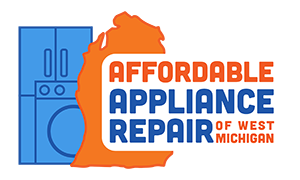Nearly one hundred cities and counties throughout the United States have chosen to limit natural gas usage via a variety of building decarbonization ordinances. Many developers are now installing heat pumps and non-gas appliances in their buildings, making induction cooktops more popular than ever before.
Not only are induction cooktops more environmentally friendly than natural gas, but they are also faster, cleaner, safer, and more efficient than both natural gas and electric cooktops. Appliance manufacturers are even expanding their lines of kitchen cooking systems to include induction ranges and induction cooktops to meet consumer demand.
But how does a consumer know if an induction cooktop is a good option for their home? What are some common issues with induction cooktops?
How will a consumer know when it’s time to contact a professional appliance repair service?
Read on to learn more about induction cooktop use, care, and repair.
Efficiency is the Difference
Many consumers think induction cooktops are just like electric cooktops, but there is a very big difference between the two: efficiency. When you turn on an induction cooktop, electric current flows through a coil under the cooktop’s glass surface. This produces a fluctuating magnetic field that penetrates ferromagnetic cookware.
The electromagnetic field interacts with the molecules in the cookware, and the cookware itself becomes the heat source. The heat radiates most of its energy directly into the food. This makes them about 85 percent efficient, which is more than twice as efficient as gas stoves. Electric stoves come in second with over 70 percent efficiency.
The magnetic field produced by induction cooktops creates nearly instant heat. Turning the cooktop off kills the magnetic field. This immediate responsiveness allows for rapid temperature change and faster cooking. Depending on what someone is cooking, induction cooktops can cook food thirty-to-fifty percent faster than gas ranges or electric cooktops.
Safe Use
Induction cooktops are also safer than more traditional cooking appliances. Unlike standard gas ranges, induction cooktops emit zero nitrogen dioxide, carbon monoxide, or formaldehyde. There is no open flame to burn yourself, either! The cooktop is cool to the touch until a pan is placed upon it.
Easy Care
Caring for an induction cooktop couldn’t be easier! Simply wipe the cooktop’s surface with a damp sponge or soft cloth. For removing water stains, try a vinegar-water solution. For stubborn messes and food residue, use a nonabrasive cleanser; allow the solution to sit on the cooktop for a bit, and then wipe it away with a paper towel or soft cloth.
Compatibility and Repairs
Some common issues with induction cooktops are noise, cookware compatibility, and coil malfunctions. Many induction cooktops make a humming or buzzing noise when heating the cookware placed upon it. While humming and buzzing is normal, cracking is not. Cracking noises could indicate that the induction cooktop has come into contact with incompatible cookware.
Continued exposure could damage both the induction cooktop and cookware, so it’s important to pay close attention to the sounds coming from the cooktop. Induction cooktops only work with pots or pans that contain iron or steel. To check if your cookware passes the test, place a magnet on the bottom of your pot or pan. If it sticks, it will likely heat up on an induction cooktop. If the magnet does not stick, you may need to invest in new, more compatible cookware.
Sometimes, the coils within the cooktop can become compromised or damaged. A faulty coil will not heat cookware properly. A professional appliance repair service can examine the coil and, if necessary, replace the faulty coil.
Overall, induction cooktops are safer and more efficient than gas ranges and electric cooktops. If you live in a city that is implementing building decarbonization ordinances, or if you’re simply interested in safer, more efficient cooking methods consider investing in an induction cooktop.
Related Questions
Do professional chefs use induction cooktops?
More professional chefs are embracing induction cooktops due to their functionality and sustainability.
How reliable are induction cooktops?
Induction cooktops use electromagnetic energy to cook food. Over time, their components can weaken, but a professional appliance repair service can replace the components as needed.
Does stainless steel cookware work on an induction cooktop?
Stainless steel cookware only works on an induction cooktop if the base of the pan contains magnetic-grade steel. Sometimes, stainless steel pans have high nickel content, which blocks the cooktop’s magnetic current.
How many years do induction cooktops last?
Induction cooktop lifespans are typically measured in operating hours. Models designed for domestic use usually last for 2,500 hours.
Questions on your induction cook top? Contact Appliance Repair Service of West Michigan for the answers. We can help you navigate any home appliance including induction cooktops. After a quick phone call and some troubleshooting tips, we can determine if your home appliance is in need of repair. We service all home appliances from washers and dryers to refrigerators and garbage disposals.
Our appliance repair services are dependable, trusted and known throughout the local area.

